How long do RVs last? This is a question that many people have, and it’s not always an easy one to answer. The truth is, there is no one-size-fits-all answer to this question. The lifespan of an RV depends on a variety of factors, including how well it’s been taken care of and the type of RV you own. In this article, we will discuss common questions and tips about How Long Do RVs Last?
Table of Contents
What is the life expectancy of an RV?
On average, an RV is expected to last from 10 to 20 years. This range depends on the type of RV and the care it receives. Motorhomes, for example, are usually built with more durable materials than travel trailers and tend to have a longer life expectancy of 15-20 years. Meanwhile, travel trailers generally last between 10-15 years as they’re built with lighter materials that can be easily damaged by weather or overuse. [1]
It’s important to note that a well-maintained RV will definitely last longer than one that isn’t taken care of properly. Regular maintenance can help prevent rusting and other types of damage which could significantly reduce its lifespan. Checking roof seals, interior components, and plumbing can help to catch any potential issues before they become more serious.
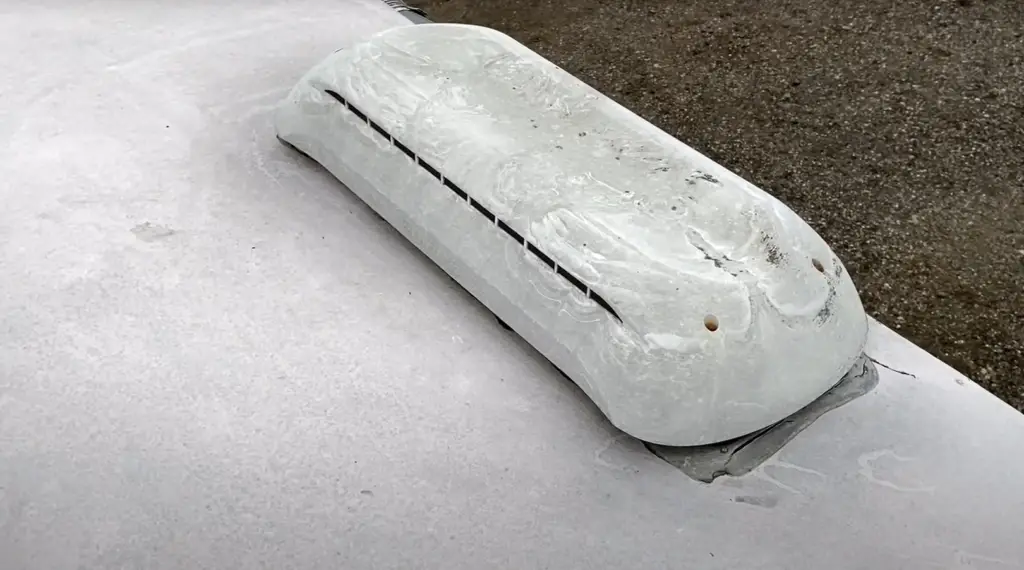
Overall, the life expectancy of an RV is determined by its type, care, and maintenance. Keeping up with regular maintenance will help extend the life of your RV significantly. With proper care and attention, you should be able to enjoy your RV for many years to come!
What factors impact the longevity of your RV?
RV longevity is largely dependent on how well you take care of your vehicle. Regular maintenance, including changing the oil and inspecting brakes, tires, hoses, and other components will help keep your RV in top condition for years to come. It is also important to properly store your RV when not in use (both inside or outside) – make sure to clean it thoroughly before storing and protect it from the elements.
A number of additional factors can affect the lifespan of an RV: age, quality of materials used in its construction, mileage, climate conditions where you live and travel often, how much wear & tear it sustains over time due to frequent driving or hauling heavy cargo.
If you are purchasing a used RV, it is important to be aware of the vehicle’s history – find out how often it was serviced and whether any major parts have been replaced. Know what you are getting into – a well-maintained RV will last longer than one that has not received regular maintenance or taken good care of in other ways.
Additionally, RVs can experience accelerated wear and tear due to extreme weather conditions or rough terrain. If your travels take you through regions with intense temperatures (especially hot weather) or roads with lots of bumps and potholes, this could affect the life expectancy of your RV. Make sure to properly maintain and inspect your vehicle for any signs of damage before hitting the road. [2]
Ultimately, following proper maintenance procedures and taking the necessary precautions can help extend the life of your RV. By being mindful of how you choose to use and store your vehicle, you can ensure many years of safe and enjoyable travels.
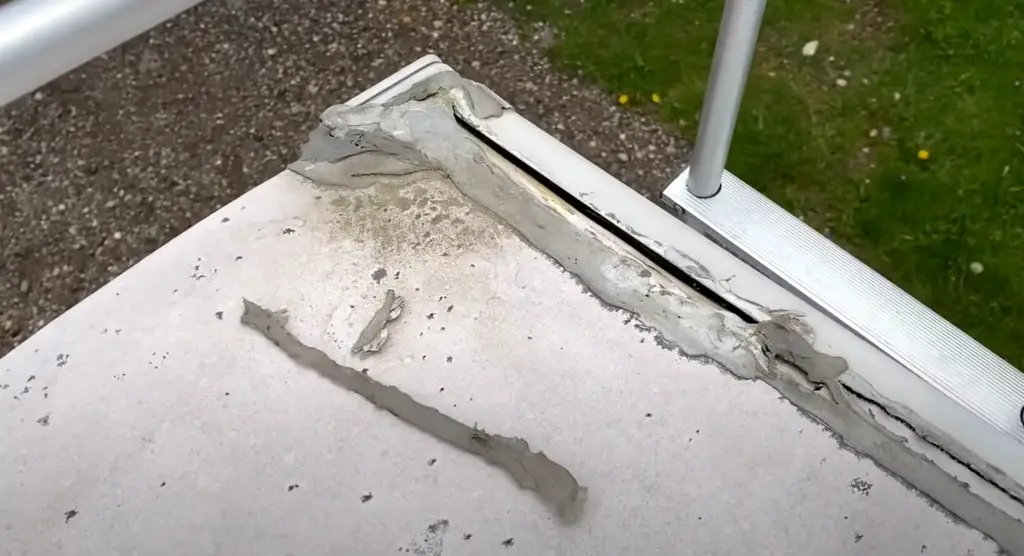
How Long Is the Lifespan Of An RV?
The lifespan of an RV can vary depending on the model and how it is cared for. Generally, a well-maintained RV should last at least 10 years and up to 25 years or more. Factors such as the type of materials used in construction, regular maintenance, and storage conditions affect the longevity of your unit.
What Reduces the Life Of Your RV?
Apart from regular wear and tear, there are several things that can reduce the life of your RV. These include:
- Poor maintenance – inadequate and improper maintenance of your RV’s mechanical systems, such as the brakes, can severely limit its lifespan. Regular servicing is essential if you want to keep it running in top condition for longer.
- Exposure to bad weather – extreme temperatures and frequent storms can take their toll on your RV’s bodywork, causing rusting and other damage that will reduce its life expectancy. Make sure you have good quality covers to protect it when not in use.
- Driving recklessly – if you drive carelessly or too aggressively with your RV, this can cause damage to its body and mechanics, reducing its lifespan.
- Poor storage – if you store your RV in a damp environment, it can lead to corrosion and other damage that will cause the vehicle to deteriorate faster than normal. Make sure it is kept dry in an appropriate space when not in use. [3]
Investing in quality parts and equipment helps too – don’t be tempted to cut corners just because you want to save money! Finally, make sure that you keep up with any changes or updates that might be recommended by the manufacturer for maximum performance and longevity.
Tire Blowouts
One of the most common causes of RV breakdowns is a tire blowout. This can occur due to a range of factors, such as poor maintenance, age or overloading. It’s essential that you regularly check your tires for any signs of wear or damage and replace them when necessary. Additionally, you should ensure that they are inflated to the correct pressure – an under-inflated tire will cause more strain on the sidewall and increase the risk of it bursting suddenly.
It’s also important to be aware that driving at high speeds can increase the chance of a blowout, so it pays to take things slow when behind the wheel. If you do experience a blowout while out on the road, make sure you take the necessary precautions to keep yourself and your passengers safe.
Water Damage
Leaks in the roof, walls or windows can all lead to water seeping inside the vehicle and ruining its interior.
To prevent this, you should inspect your RV on a regular basis for any signs of damage or wear that might allow water to get in. Make sure that any seals are kept in good condition and have them replaced if necessary – even small cracks or holes can let large amounts of water through.
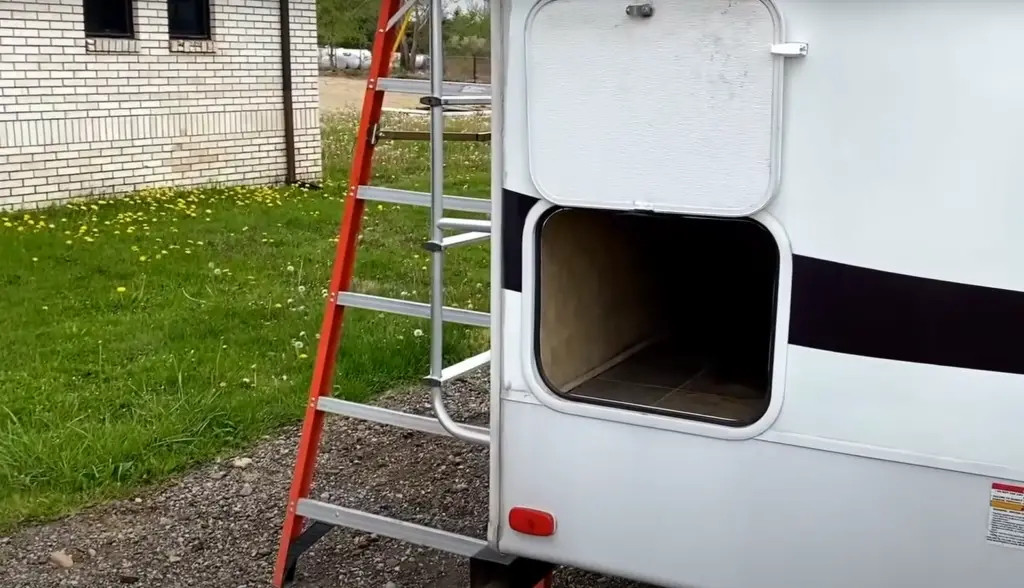
If you do find that your RV has been affected by water damage, it’s important to act fast. Mold and mildew can spread rapidly so make sure you dry out any wet areas as quickly as possible. In severe cases, it might be necessary to replace some of the interior components or even rebuild sections of the vehicle – this is obviously a much more expensive job and should be avoided if at all possible!
Roof Wear
The roof of your RV is incredibly vulnerable to wear and tear, due to its exposure to the elements. Over time, UV rays can cause damage and cracking, while dirt and debris can accumulate on the roof and block drains or cracks that allow water to seep inside.
To keep your roof in good condition, it’s important that you clean it regularly – a brush with a long handle is ideal for this job. Additionally, use specialist products such as sealers or coatings to protect the material from UV rays and other weather-related damage.
Finally, make sure you inspect your roof for any signs of cracking or holes when you carry out routine maintenance checks. If these are caught early, they can usually be repaired quickly and easily – if allowed to worsen, however, they can cause significant issues.
Electrical Issues
Another common cause of RV breakdowns is electrical issues. Over time, your vehicle’s wiring can become damaged or corroded due to exposure to heat and moisture, leading to faults in the system.
To prevent this, it’s important that you keep all components clean – dirt and dust can cause obstructions which can lead to problems further down the line. Additionally, make sure that any fraying wires are replaced as soon as you notice them.
Finally, check for any signs of corrosion on a regular basis – this will help avoid bigger issues such as short circuits or faulty connections. If you do spot any damage that looks too severe to repair yourself, don’t hesitate to call in a professional to help.
By following these simple tips, you can ensure that your RV remains in top condition for years to come. Regular maintenance is the key to keeping your vehicle running smoothly and avoiding costly repairs – don’t forget to give it the TLC it deserves!
How to Extend the Life Of Your RV?
The best way to ensure your RV lasts is to take proper care of it. Here are some tips on how you can extend the life of your RV:
- Follow the maintenance schedule that was provided with your RV. This will help keep all components in optimal condition and reduce the likelihood of breakdowns or malfunctions.
- Inspect your RV regularly for any signs of wear and tear, such as cracks or leaks, and repair them immediately before they worsen.
- Protect the exterior of your RV with a weatherproof coating that is designed specifically for RVs. This will protect against UV rays from the sun, rain, snow and other elements.
- Keep up with regular cleaning and detailing to remove dirt, dust, mold and mildew that can cause damage over time.
- Make sure to winterize your RV during the off-season to reduce the likelihood of freezing pipes or other components.
- Check the tires often and replace them when necessary to ensure they are in good condition and at optimum pressure levels.
- Invest in quality accessories such as covers, skirting and awnings that will protect your RV from the elements and extend its life.
Check Your Roof Regularly
This is because it’s exposed to the elements and can be a major source of damage over time. Make sure that you check your RV’s roof for any signs of cracking or tears in the material, as well as debris such as leaves or branches that may have accumulated on top. Clean off any debris and repair any damages immediately to prevent further damage.
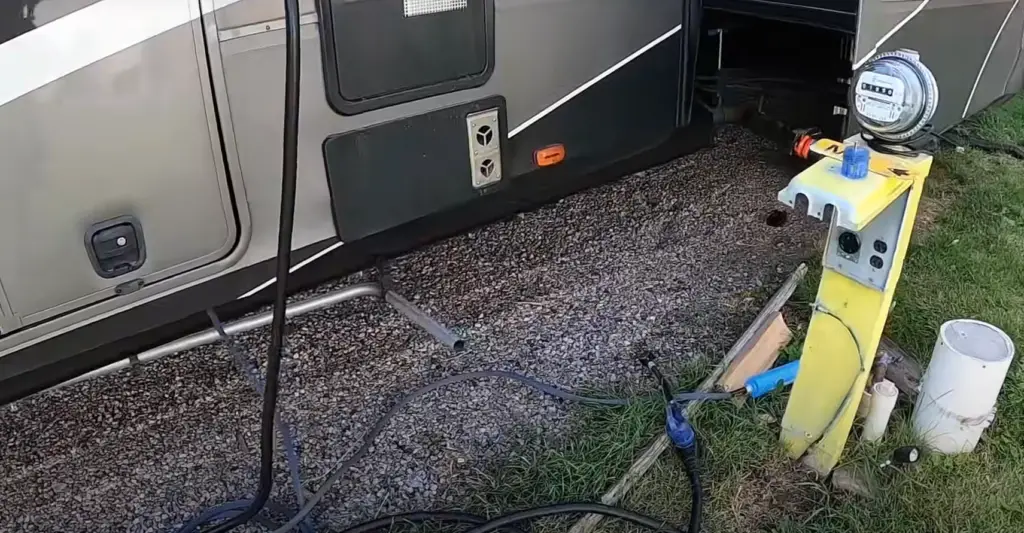
Finally, make sure you stay up-to-date with any recalls related to your RV model so that you know if there are any urgent issues related to its longevity. Following these tips will help extend the life of your RV and ensure that it stays in good condition for many more years to come.
Complete Seasonal Maintenance
To ensure that your RV is in the best shape possible, it’s a good idea to complete seasonal maintenance. This includes preparing your RV for summer and winter seasons, as well as other seasonal activities such as camping or fishing trips. Before each season begins, inspect all components of your RV to make sure there are no signs of wear and tear. This includes checking the tires, roof, seals and windows for any damage or need for repair. Additionally, make sure you check fluids such as antifreeze levels and brake fluid levels before the start of each season to reduce the likelihood of breakdowns or malfunctions.
Cover Your RV in the Winter
If you live in a cold climate, it’s important to cover your RV during the winter months so that it is protected from the elements. Investing in a quality RV cover will help protect against strong winds, snow and other harsh weather conditions. Additionally, make sure to properly winterize your RV before covering it for the season; this includes draining all water systems, cleaning out any debris and adding antifreeze to all pipes.
Wash the Exterior Walls
Your RV’s exterior walls can take a lot of damage over time due to dirt, dust, mud and other elements. To keep your RV looking great, make sure to wash the exterior walls regularly with a mild cleaning solution and water. This will help remove any dirt or grime that could cause damage over time. Additionally, waxing your RV every few months can help protect its finish from UV rays and weather damage.
Change Your Oil
Finally, don’t forget to change the oil in your RV regularly. This is an important step to maintain optimal engine performance and reduce the risk of breakdowns. Most RVs require an oil change every 3,000-5,000 miles; follow the manufacturer’s guidelines for your specific model. Additionally, check other fluids such as coolant levels, brake fluid levels and transmission fluid levels at least once a year to ensure all components are running smoothly and efficiently.
Use your RV
At the end of the day, one of the most important things you can do to ensure your RV lasts longer is to actually use it. Take regular trips and enjoy all that your RV has to offer. This will not only make you happy but also keep all of its components running at their best so that it remains in good shape for many years down the road! [4]

What Kind Of RV Lasts the Longest?
The type of RV you choose can make a huge difference in how long it lasts. Generally, Class A motorhomes, fifth wheel trailers and travel trailers are the longest-lasting. These types are typically made from high-quality materials with superior construction and design. They will provide years of comfortable living on the road or at your favorite campground.
On the other end of the spectrum, pop up trailers and teardrop trailers have shorter life spans due to their lighter materials and less durable construction methods. Although these RVs may cost less upfront, they won’t last as long and you may need to replace them sooner than you would like.
Another factor that affects an RV’s longevity is its size. Larger RVs tend to be heavier and sturdier, making them less susceptible to wear and tear. Smaller RVs may not perform as well over time due to their lightweight materials and construction techniques.
How does mileage affect RV lifespan?
Mileage is one of the biggest factors in determining an RV’s lifespan. An RV that has been driven a lot will generally not last as long as an RV that has been lightly used.
In addition to mileage, other things like climate and environment play a role in determining how well your RV holds up over time. Driving through extreme environments or climates can cause more wear and tear on the body of the vehicle which may reduce its overall lifetime expectancy. Keeping your RV stored in covered areas whenever possible can help prolong its life expectancy.
It’s also important to remember that all RVs are different. Some types of RVs may last longer than others, depending on their construction and the materials used. Investing in a quality vehicle that is built with high-quality materials is key to ensuring your RV lasts as long as possible.
By taking all of these factors into account, you can ensure your RV has a long life ahead. Regular maintenance and upkeep, being mindful of the environment and climate, and investing in a well-built vehicle are all essential steps to making sure your RV lasts as long as possible.
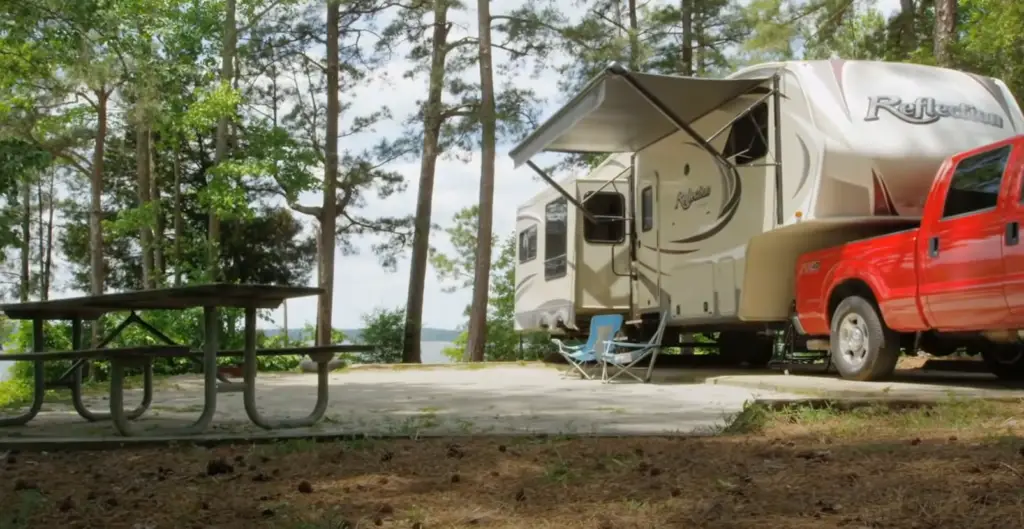
RV Depreciation Rate
The depreciation rate of an RV depends on a variety of factors. Age, condition, and quality all play into how much the value of an RV decreases over time. A good rule of thumb is for every year that passes after the initial purchase date, you can expect about 10-15% depreciation in value.
For example: if you buy a new recreational vehicle for $50,000 then one year later it may only be worth around $42,500-$45,000. This means that when buying a used recreational vehicle from a private seller, it’s important to keep this in mind so you don’t overpay for what could be considered just an older model. [5]
It’s also important to note that certain types of RVs tend to depreciate faster than others. For example, Class A motorhomes generally have higher depreciation rates than travel trailers, which lose value much more slowly over time due to their lighter weight and simpler design.
Take Care Of Your RV
Taking proper care of your RV is the best way to ensure it lasts for as long as possible. Investing in regular maintenance, including oil changes and preventive check-ups from professionals, will help keep it running smoothly. Additionally, spending time cleaning and waxing the exterior can help protect against rust and corrosion. If you are storing your RV for any period of time, be sure to cover it with a tarp or breathable fabric cover to keep debris out.
It’s also important to pay attention to the type of roads that you are driving on and make sure they are suitable for your type of RV. Driving too fast on dirt or gravel roads can damage the underside of your vehicle while potholes and other road hazards can cause damage to the tires and suspension. Taking it slow and steady is always best when driving your RV.
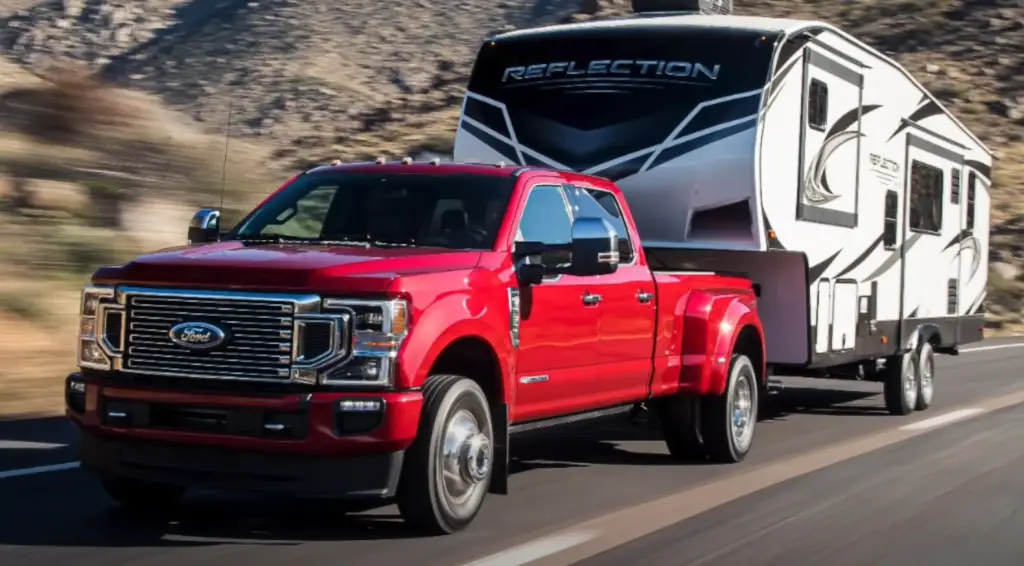
FAQ
What is the useful life of an RV?
The useful life of an RV depends on many factors, including the type and quality of materials used in its construction, how often it is used and maintained, and where it is stored. Generally speaking, the average life of an RV can range anywhere from 10 to 25 years.
That said, some types of RVs can last much longer than this if they are well-maintained. Class A motorhomes (the largest kind) tend to have a lifespan of around 20 years, while smaller travel trailers can last up to 30 years or more with proper care. [6]
What is high mileage for an RV?
Generally, high mileage for an RV is usually considered to be more than 100,000 miles. That said, the actual number can vary significantly depending on the type of RV and how well it has been maintained over its lifetime.
For example, some Class A motorhomes can go up to 200,000 miles before needing significant repairs. On the other hand, travel trailers may last only 60-80,000 miles even with proper maintenance.
It’s important to remember that RVs are made up of many different components that each have their own lifespan. So while an engine might last 150,000 miles without any problems, you could experience issues with other parts such as brakes or suspension much earlier in its life. [7]
Additionally, RV owners should consider the age of their vehicles. Even if it has low mileage and is in good condition, parts can become more prone to breakdowns as they age and wear out over time. Therefore, it’s always a good idea to have your RV regularly serviced, even if you don’t drive it a lot.
How many miles does an RV engine last?
The life of an RV engine depends greatly on the maintenance that is provided. Properly maintained engines can last up to 200,000 miles or more, while neglected engines will likely need to be replaced after 50,000 miles. It’s important for RV owners to keep up with regular oil and filter changes, air filter replacements, spark plug replacements and tune-ups in order to maximize the lifespan of the RV engine.
How long do motorhomes last?
However, this can vary depending on the type of RV and how well it is maintained. Class A motorhomes, which are typically the largest and most luxurious types of RVs available, typically last the longest if they are kept in good condition. On the other hand, pop-up campers tend to have a shorter life span due to their lighter construction materials and a smaller size that makes them more prone to wear and tear from frequent use.
It’s important to note that even with regular maintenance, your RV will still age over time as parts start to wear out or become outdated. The best way to ensure your RV lasts as long as possible is to have it serviced regularly and address any problems or repairs right away. Also, if you use your RV often, it’s important to give it a break by storing it in a covered and secure location when not in use.
Finally, investing in quality parts and upgrades can improve the longevity of your RV while minimizing potential maintenance costs down the line. For example, replacing old or worn out tires with new ones that are designed for RVs can help prevent blowouts and breakdowns on the road. Additionally, upgrading your water heater or adding solar panels to power some of your appliances can reduce strain on other components and extend their lifespan.
Useful Video: What is the lifespan of a travel trailer? This is a must watch prior to buying one
Conclusion
When it comes to RV life, there’s no one-size-fits-all answer to how long they last. Many factors contribute to their longevity – from the type of RV, its quality and condition, maintenance and care, weather conditions, and more.
Because of this variation in lifespan across different models and individual RVs, it’s important for new owners to get a good understanding of their RV before purchasing or committing to an extended lease. Taking the time to research average lifespans for different types of vehicles as well as inspecting your potential purchase can help you make a better informed decision when considering taking on an RV lifestyle.
At the end of the day, investing in proper maintenance will ensure that your RV lasts as long as possible and gets you the best return on your investment. Taking good care of your RV means it will repay you with comfort and convenience during all your travels. Happy camping!
Reference
- https://rvshare.com/blog/how-many-miles-do-rvs-last/
- https://omcmotorhomes.co.uk/how-long-do-motorhomes-last/
- https://www.thesavvyglobetrotter.com/how-to-extend-lifespan-of-rv/
- https://tripwizard.rvlife.com/rv-info/extend-the-life-of-your-rvs
- https://camperreport.com/rv-depreciation-everything-possibly-want-know/
- https://www.jdpower.com/rvs/shopping-guides/how-much-do-campers-depreciate
- https://www.metacamper.com/what-is-considered-high-mileage-for-an-rv/

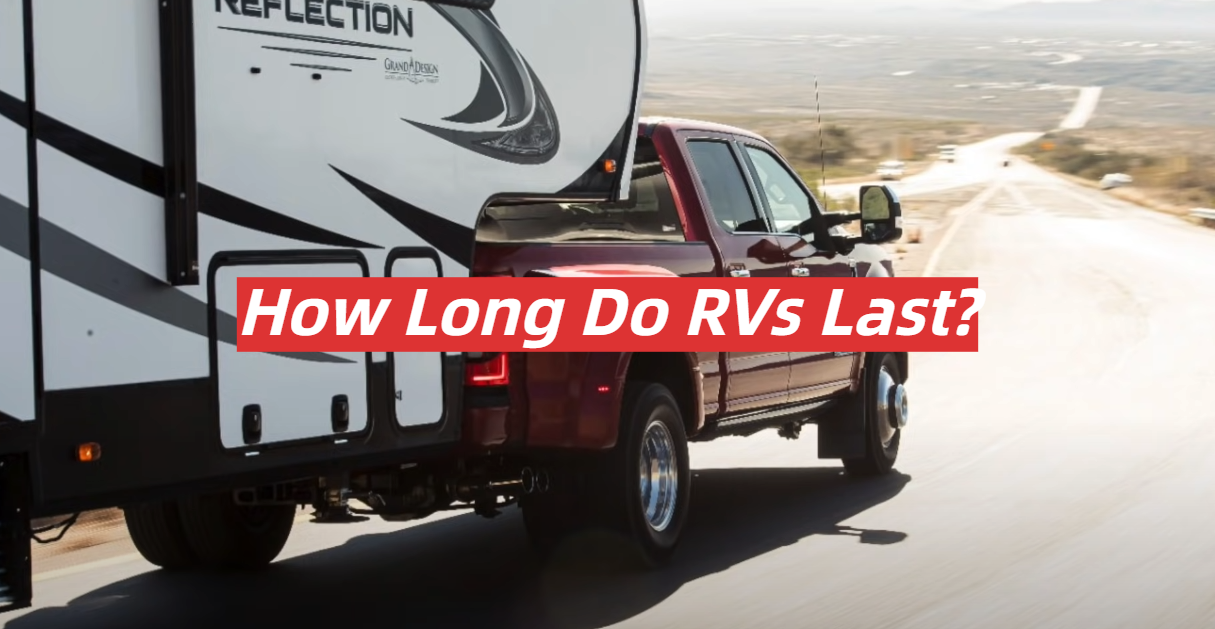

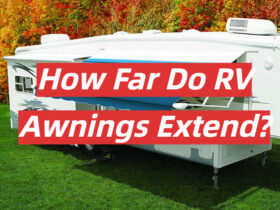

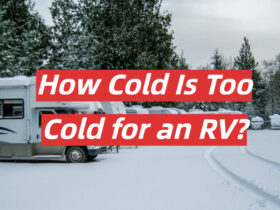
Leave a Reply